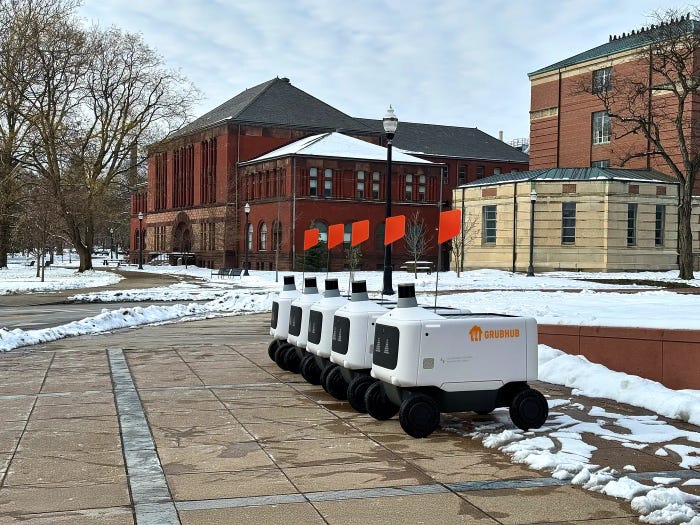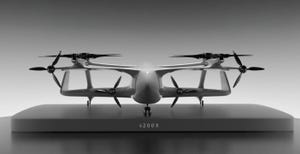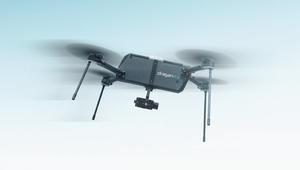Self-Driving Robot Pods Tested at Atlanta AirportSelf-Driving Robot Pods Tested at Atlanta Airport
The autonomous, electric pods are claimed to be the first to safely transport those with limited mobility in crowded places

Passengers with reduced mobility (PRM) at Hartsfield-Jackson Atlanta International Airport now have a new option for getting around – self-driving robot pods.
With more than 100 million passengers a year traveling through Atlanta Airport, navigating the world’s busiest air hub can be quite a challenge at the best of times.
But it is especially daunting for those who are not confident in their mobility, which has prompted a trial of the pods, in conjunction with Southwest Airlines, at the airport’s departure level Concourse C.
The pods were developed by Vancouver-based A&K Robotics, a company founded in 2015 that specializes in advanced navigation systems. It claims the autonomous, electric pods are the first in the industry to safely transport people with limited mobility in crowded places while avoiding obstacles and other people.
The pods, which work via A&K’s intelligent navigation technology, do not require any external infrastructure and can maneuver around moving objects.
Typically, they are being used in Atlanta to help passengers independently reach the gates or get food at restaurants.
The timing of the trial is welcome, as PRM is one of the fastest growing passenger groups in aviation, and airports are actively searching for ways to help them cover potentially lengthy distances across terminals.
“We have been looking for advanced mobile robotics solutions to improve operations and found that A&K has the most advanced autonomous micro mobility solution for PRM assistance,” said Jai Farrell, deputy general manager and chief commercial officer of Hartsfield-Jackson Atlanta International Airport.
“This is the first time we are testing robots at the departure level and the results are very impressive. We are looking forward to expanding the tests and possibly adding A&K’s pods to our existing PRM operations, making it easier for our passengers to navigate the airport.”
Jessica Yip, COO of A&K Robotics said her company designed the autonomous platform to “improve quality of life and play a major role in the future of transportation.”
“ To see our innovation being considered by Atlanta Airport to enhance the travel experience of passengers with limited mobility is exhilarating,” she said.
Usage of A&K’s robotic solutions isn’t restricted to airports. They have been successfully tested internationally across a diverse array of real-world environments including in education, retail and health care.
About the Author
You May Also Like


.jpg?width=700&auto=webp&quality=80&disable=upscale)
.jpg?width=700&auto=webp&quality=80&disable=upscale)

.jpg?width=300&auto=webp&quality=80&disable=upscale)


